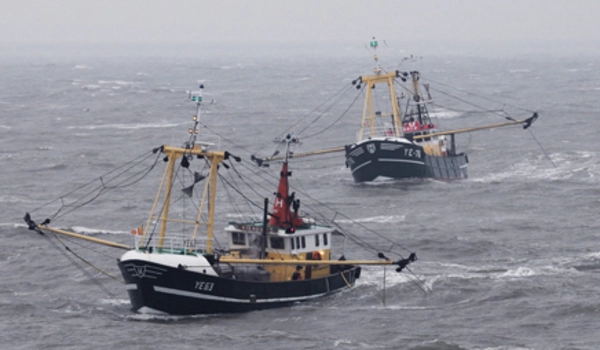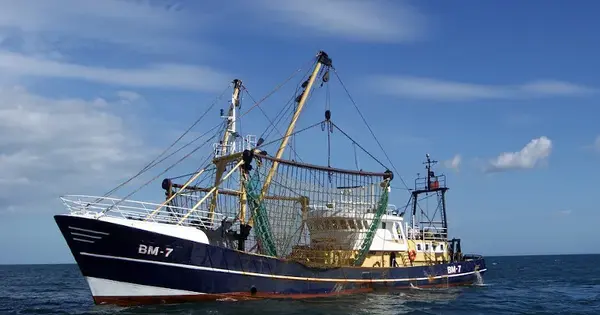According to a new study, while legislation designed to promote the sustainability of marine fisheries is sometimes blamed for being too stringent, resulting in what some politicians call “underfishing,” the law is not constraining most fisheries, and there are a variety of other factors that contribute to certain fish species being less fished.
As warming waters threaten fish populations and disrupt fisheries around the world, it is critical to find ways to sustain fisheries while keeping them economically viable for those who rely on them for a living. Commercial fishing employs 1.2 million Americans and generates more than $165 billion in revenue annually in the United States.
The Magnuson-Stevens Act, which was modernized in 1996 to promote the long-term biological and economic sustainability of marine fisheries, has been the primary means by which the United States has protected its fisheries. However, reauthorization of this act has been stalled in Congress for a decade, with some politicians accusing the law of being too stringent, resulting in “underfishing.”
Targeting the Magnuson-Stevens Act will not change some of these outcomes. It is critical to comprehend the plethora of factors at play. Simply relaxing the law’s fishery management targets will almost certainly fail to increase utilization in many of the marine fisheries that appear to be underutilized on the surface.
Kimberly Oremus
Kimberly Oremus of the University of Delaware was a lead author on a paper published in Science that examined US fishing policy. The study discovered that the Magnuson-Stevens Act does not constrain most fisheries and that there are a variety of other factors that contribute to certain fish species being overfished.
Oremus, an assistant professor in the School of Marine Science and Policy, and Eyal Frank, an assistant professor at the University of Chicago Harris School of Public Policy, served as the lead authors on the paper.
The researchers examined data from 170 U.S. fish stocks spanning two decades. These 170 managed fish stocks account for 85% of all marine commercial fish landings in the United States.
Oremus, Frank, and their co-authors investigated the claim of critics of US fishing law that it is too stringent and leaves too many fish in the water. They discovered that the primary reason that approximately half of the fish stocks in the United States are considered “overfished” is due to pure economics: fishers are not harvesting the fish because there is insufficient demand for them.

Only four fish species – Eastern Bering Sea walleye pollock, Atlantic sea scallop, Gulf of Mexico brown shrimp, and Gulf of Mexico white shrimp – account for the majority of the revenue in those stocks identified by the researchers as potentially underutilized and fished. The majority of the revenue came from just one species: walleye pollock, whose catch is not restricted by the Magnuson-Stevens Act.
Other, healthy fish stocks are being left in the water because they cannot be caught profitably without also catching depleted fish species.
“Some healthy stocks are constrained by the Magnuson-Stevens Act because they are often caught with other stocks that are depleted,” Oremus said. “Some stocks are constrained by other laws such as the Marine Mammal Protection Act or the Pacific Halibut Treaty with Canada. Some stocks are constrained by both market forces and policies, such as our Gulf of Mexico shrimp stocks that are struggling to compete with the price of imported shrimp coming from less regulated countries.”
While political rhetoric has focused on laws that protect fisheries, such as the Magnuson-Stevens Act, as the primary cause of underfishing, the researchers said it is important to take a nuanced view of the picture and look at fisheries on an individual basis.
“Targeting the Magnuson-Stevens Act will not change some of these outcomes,” said Frank. “It is critical to comprehend the plethora of factors at play. Simply relaxing the law’s fishery management targets will almost certainly fail to increase utilization in many of the marine fisheries that appear to be underutilized on the surface.”
With environmental changes and overfishing still a major concern in other parts of the world, it is critical to have science-based fisheries laws in place to sustain fish stocks in the future, according to Oremus.
“On average, we find that less fished stocks were less fished six years before the law was passed in 1996, and their revenue share has remained consistent from 1990 to 2015,” Oremus said. “Though no law is perfect, the law appears to be attempting to balance the needs of fishers, other stakeholders, and long-term conservation of the resource.”
















